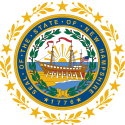Rule 8.3. Reporting Professional Misconduct
(a) A lawyer who knows that another lawyer has committed a violation of the Rules of Professional Conduct that raises a substantial question as to that lawyer's honesty, trustworthiness or fitness as a lawyer in other respects, shall inform the appropriate professional authority.
(b) A lawyer who knows that a judge has committed a violation of applicable rules of judicial conduct that raises a substantial question as to the judge's fitness for office shall inform the appropriate authority.



